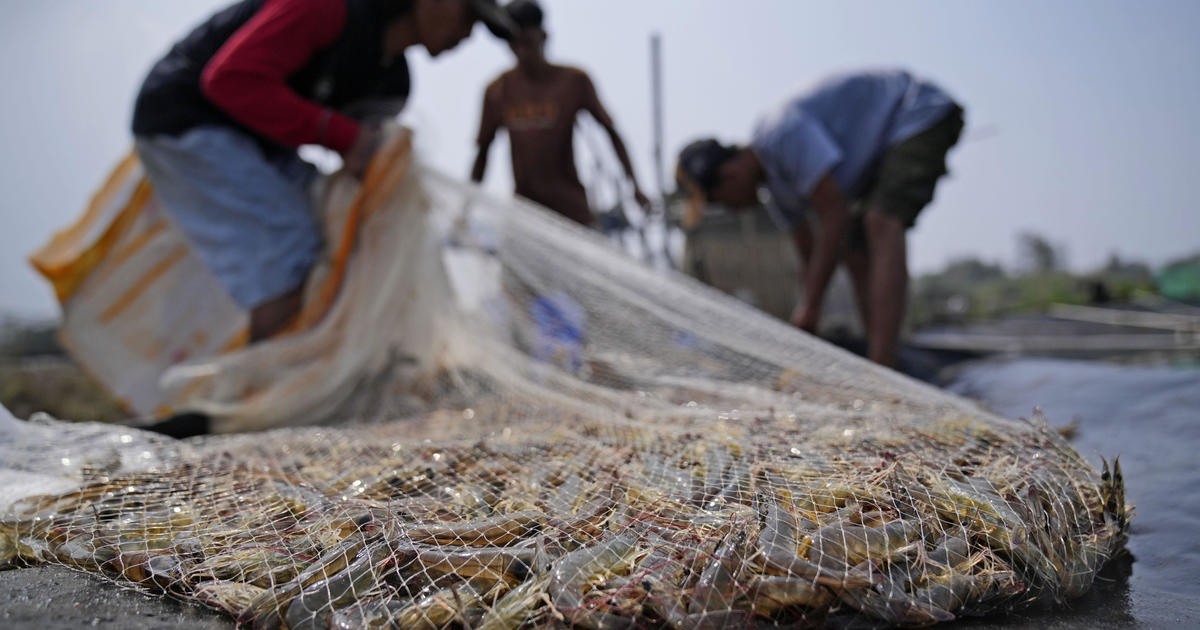The global shrimp industry, a multi-billion dollar market fueled by Western consumer demand, is marred by widespread exploitation of workers, primarily women, in producing countries like Vietnam, Indonesia, and India. This exploitation, driven by the relentless pursuit of lower wholesale prices by large supermarkets, results in abysmal working conditions and wages significantly below the poverty line. This report analyzes the devastating consequences of this business model, focusing on the human cost hidden within the seemingly innocuous shrimp dish on Western dinner tables.
The Hidden Cost of Cheap Shrimp: Exploitative Labor Practices
Unpaid and Underpaid Labor
The investigation reveals a shocking reality: workers across the three major shrimp-producing nations endure pervasive underpayment and unpaid labor. In Vietnam, predominantly women, work six to seven days a week in freezing conditions, often for less than minimum wage. The grueling work, involving peeling, gutting, and deveining shrimp, starts before dawn and ends well into the evening. Pregnant women and new mothers, though given a slightly shorter workday, still experience significant financial strain. Similar scenarios are documented in Indonesia, where monthly wages average $160, falling short of the minimum wage, forcing workers to endure 12-hour workdays to meet minimum quotas. In India, the situation is equally grim, with prevalent unpaid overtime, wage deductions, significant debt bondage, and even the presence of child labor. These findings highlight the inherent flaw in a system that prioritizes low prices over human dignity and worker rights.
Systemic Issues: Beyond Individual Companies
The problem extends beyond isolated incidents of poor working conditions at specific farms. The report emphasizes a systemic issue woven into the very structure of the industry. Middlemen obscure the origins of shrimp, making it difficult for retailers to trace ethical sourcing claims. The limited number of farms with ethical certifications— only a tiny fraction of the millions of farms worldwide— highlights the significant gap between the marketed commitment of major supermarkets towards sustainably sourced shrimp, and the reality faced by workers. This opacity makes it exceptionally challenging for both consumers and oversight bodies to identify and address the exploitative labor practices deeply embedded within the supply chain. Even certifications themselves are insufficient, offering minimal guarantee against labor exploitation. This points to the critical need for structural change beyond the current, largely ineffective, self-regulatory mechanisms.
The Role of Supermarkets and Global Supply Chains
Supermarket Complicity and the Pressure for Low Prices
Western supermarkets, seeking to maximize profits, exert significant pressure on producers to continually lower prices. This relentless drive for lower wholesale costs directly translates into diminished wages and increasingly poor working conditions for those involved in shrimp farming and processing. The report directly implicates major retailers such as Target, Walmart, Costco, Sainsbury’s, Tesco, Aldi, and Co-op in facilitating or benefitting from this system. While some retailers issued statements claiming commitment to ethical sourcing and human rights, these promises fall short of demonstrably altering the exploitative conditions reported. The lack of concrete evidence of tangible improvements exposes a significant disconnect between public commitments and actual impact on supply chain ethics. The scale and gravity of the issue raise concerns about their genuine dedication to addressing the root causes of labor exploitation.
The Unfair Dynamics of Global Trade
The report strongly argues that the current global trade model, especially the role of large retailers with significant buying power, disadvantages producers and workers. This power imbalance leads to price manipulation that benefits only the largest corporations and their shareholders. Without fundamental reforms within these existing dynamics, the exploitation is likely to persist and potentially escalate, demanding immediate attention to the fairness of international trade relationships within the food industry. The sheer size and interconnectedness of the global shrimp trade create significant difficulties for both regulation and remediation.
Solutions and Pathways to Change
Rethinking Consumer Choices and Corporate Accountability
Consumers play a significant role in driving demand and consequently shaping industry practices. Increased awareness of labor conditions can significantly influence buying habits, creating incentives for companies to prioritize ethical sourcing. Holding corporations accountable through robust and effectively implemented corporate social responsibility frameworks and international regulations is crucial for minimizing labor exploitation and safeguarding worker rights. Strengthening enforcement mechanisms will play a key role in pushing businesses to genuinely implement positive changes along the whole production chain.
Policy Interventions and International Cooperation
Legislation and effective enforcement are paramount for real, lasting change. Governments in both producing and consuming countries must strengthen and fully enforce existing labor laws. Implementing regulations on supply chain transparency and worker protection will add necessary oversight and empower effective action against unethical businesses. International collaborations are also essential for establishing unified standards, ensuring compliance, and harmonizing regulations to minimize loopholes and geographical exploitation. This will enhance monitoring capabilities and foster greater transparency throughout the entire shrimp value chain.
Takeaway Points:
- The global shrimp industry is plagued by widespread labor exploitation, particularly impacting women in Vietnam, Indonesia, and India.
- Supermarkets’ aggressive pursuit of lower prices directly contributes to the poor working conditions and low wages.
- Opacity in the supply chain makes it difficult to hold retailers accountable for ethical sourcing commitments.
- Addressing this issue requires a multifaceted approach involving consumer awareness, stronger corporate responsibility, and robust policy interventions at national and international levels.




